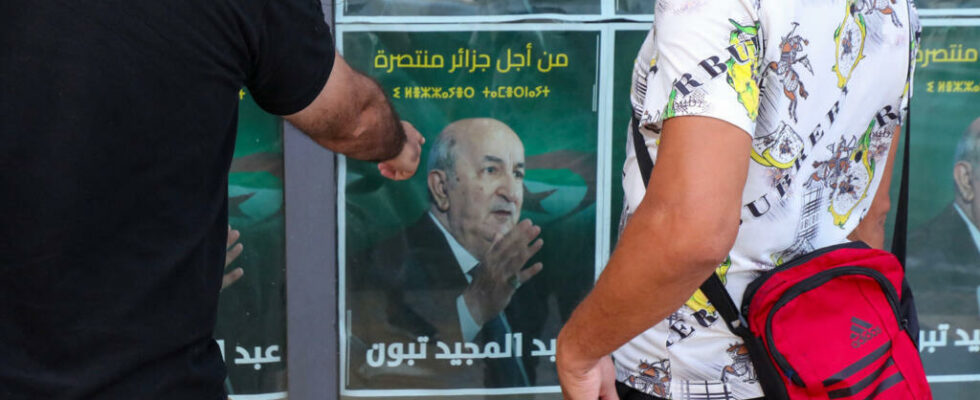This Saturday, September 7, nearly 24 million Algerian voters are called to participate in an early presidential election, where the outgoing president Abdelmadjid Tebboune is seeking a second term against two opponents. The future head of state will be responsible for governing a country of 45 million inhabitants, the leading exporter of natural gas in Africa, the third largest economic power on the continent and the largest in terms. But the main issue in this election remains the turnout, with young people and the population feeling ” disillusioned “.
3 min
For the President Abdelmadjid Tebboune, A strong turnout is crucial for his legitimacy. Supported by the former single party, the National Liberation Front (FLN), and the Islamist movement El Bina, the 78-year-old aims to continue his project of ” New Algeria » through a second term.
Facing the presidential candidate are two opponents. On the one hand, Abdelaali Hassani, a 57-year-old public works engineer. He represents the Movement of Society for Peace (MSP), an Islamist party that boycotted the 2019 presidential election. On the other hand, Youssef Aouchiche, a 41-year-old former journalist, who leads the Front of Socialist Forces (FFS), a historic opposition party that is participating in a presidential election for the first time since 1999.
Both candidates promise more freedoms if elected. The FFS candidate pledges to “ free prisoners of conscience through amnesty and review unjust laws “. The MSP advocates ” respect for freedoms reduced to nothing in recent years » after the extinction of the Hirak.
Also readAlgeria: Who are the three candidates for the presidential election?
Socio-economic promises
Despite these tensions, the three candidates focus their programs on socio-economic issues. All promise to improve the purchasing power of Algerians and to diversify an economy that is still too dependent on hydrocarbonswhich account for 95% of the country’s foreign exchange earnings.
In Algeriamore than half of the population is under 30, or 23 million people. However, unemployment affects nearly one in three young people, pushing many of them to accept small jobs and dream of illegal emigration, due to a lack of professional prospects.
Record abstention expected
Although no official data is available, analysts agree that a large majority of Algerian youth will probably not go to the polls on Saturday, September 7. Disillusioned by the electoral processes, this youth, which formed the basis of the Hirak demonstrations demanding a profound change in the political system, has lost faith in the ability of the elections to bring about transformations.
Since 2019, the feeling of disillusionment dominates. During the last presidential election, abstention reached a record rate of 60%, and according to observers, this figure could be exceeded again this year. This massive abstention would be a form of response to the immobility of the regime and to the repression, which, according to activists and human rights NGOs, has intensified in recent weeks.
According to Amnesty International, the Algerian authorities “continue to stifle civic space by maintaining their harsh repression of human rights”
In a report Published Monday, September 2, Amnesty International criticizes the Algerian authorities for their management of human rights in the run-up to this September 7 election. According to the organization, the government continues to ” stifling civic space » and to maintain a « severe repression of human rights “. Researcher and political scientist Hasni Abidi points out also pointing to a ” democratic deficit ” in Tebboune’s record, which, according to him, constitutes ” a sign of fragility for the country’s future “.
Also readAlgerian Presidential Election: Disillusioned Youth Without Hope for Real Change
